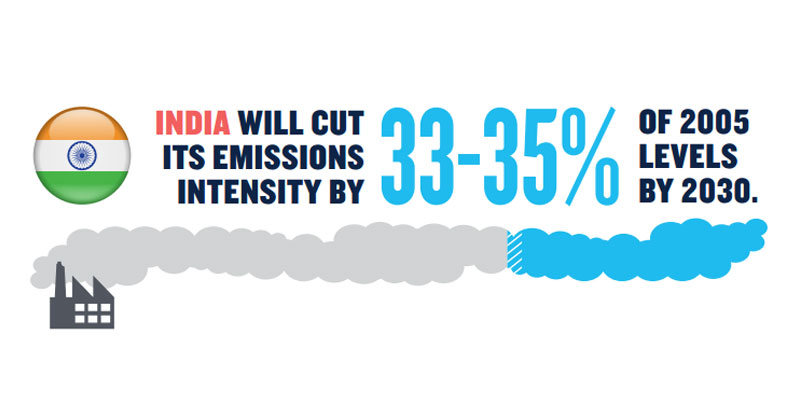It appears that regardless of what critics might say at this time about India and where it stands on the Paris Agreement goal, it is true that the country is well on course toward achieving its goals.
No longer does the world need to be tutored and handheld to be explained or made understood about that brutal aspect of our life which beckons our attention with all due seriousness. Climate change.
Whether or not someone agrees to it or that it is striking the world with a hot molten slab of lava (or not), truth is, climate change is among the dominant discourses of our times. The evidence of this has time and again been felt in different parts of the globe.
When you think of the Australian bushfires that rocked the cradle Down Under in 2020, the frequent landslides in northern India starting 2018 onwards, which to this day, haven’t really subsided or the ever increasing toll on all human lives that’s a direct result of the excesses of industrialisation, climate change is here and rising akin to a behemoth that needs to be contained.
And perhaps not just contained but subjected to with a cohesive course of action that can take the bull by its horns before it rampages us all- what do you reckon?
That is one of the reasons why a few years back in time, much of the world came together to wrap brains about finding ways to treat this great environmental malady of our times and thus the Paris Climate Agreement was born.
Also Read: CDP, A Global Non-Profit Suggests Millions Are At Risk If Cities Fail To Adapt To Climate Change!
Now before we dive into how India is going to fulfill its promise on achieving the goals that had been set out for it to achieve, here’s a bit about the Paris Climate agreement and what it fundamentally stands for:
The Paris Agreement is a legally binding international treaty on climate change. It was adopted by 196 Parties at COP 21 in Paris, on 12 December 2015 and entered into force on 4 November 2016. Its goal is to limit global warming to well below 2, preferably to 1.5 degrees Celsius, compared to pre-industrial levels.
Now, on the positive side, there’s reason to believe that India is on its way toward achieving the Paris climate Agreement goals, substantiated by certain facts and figures that came to light after Mr. Amitabh Kant, the CEO of Niti Ayog shared some insights.
The following, therefore, is what one needs to take a note of where it comes to how India is on its way toward moving on the right path (as published on moneycontrol.com):
“Our efforts in mainstreaming sustainability and reducing our carbon footprint should inspire countries across the world. Kant said India introduced the faster adoption of electric mobility policy which is facilitating India’s transition to clean mobility.
Kant mentioned that when “we talk of sustainability, and a future which is cleaner and greener, one cannot ignore the dangers posed by climate change”.
He’d, however, also bring to light a perspective basis which India cannot be looked as some instigator or contributor to all the discord that’s happening around climate change. So what did he say?
“India is not responsible for the situation. In fact, India is one of the only G20 countries well on track to achieve its nationally determined contributions,” he would further highlight.
All of that said, what do you reckon as a reader? Is India well and truly on its course toward achieving all its climate change goals as per the Paris Agreement deal, which means cutting down its greenhouse gas emissions intensity of its gross domestic product to 35 percent by the year 2030.
The efforts, certainly are on, as evident from a pro-electric car policy, among the other initiatives, that have been launched under the Govt. of India’s plans to transform the face of the country and ensure it is better prepared to face an embattled climate situation. But how far will the country go in achieving all it set out to do?
(watch this space for more)


